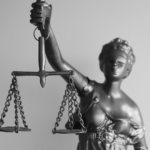
After two days of delays due to wind, the vehicle launched on the NS-19 mission at 10:01 a.m. Eastern from the company’s Launch Site One in West Texas. After reaching a high height of almost 107 kilometres, the vehicle landed little over 10 minutes after taking off.
“Today’s flight was fantastic. In what has been a fantastic year for the New Shepard programme, this was our sixth flight. In a statement, Bob Smith, CEO of New Shepard, stated, “We sent 14 humans to space, conducted a NASA payload trip that tested lunar landing sensors, and completed our certification test flights.” In 2022, the business plans “multiple” New Shepard missions transporting payloads and humans, according to the corporation.
The trip was New Shepard’s first to carry six passengers, the vehicle’s maximum capacity. Four people were on board the first two crewed flights, NS-16 in July and NS-18 in October. The six will be eligible for NASA astronaut wings, the last to be given by the agency after it announced on Dec. 10 that the programme will be phased out at the end of the year.
Two of the six were Blue Origin guests. Laura Shepard Churchley is the eldest daughter of Alan Shepard, the first American in space, and the man who gave his name to the town of New Shepard. Michael Strahan is a former NFL quarterback who now works as a television personality. For ABC’s “Good Morning America,” he has been delivering updates on his flying preparation.
The other four were passengers who had paid unknown amounts to ride in the car. Lane Bess is the founder and principal of Bess Ventures and Advisory, a family fund focused on technology. He formerly worked on the founding teams of two cybersecurity firms, Zscaler and Palo Alto Networks. Cameron Bess, a content developer, is his son and will also be on the aircraft. They are the first parents and children to go to space together.
Evan Dick is an investor and engineer who formerly worked at D.E. Shaw and Highbridge Capital Management, the same business where Jeff Bezos worked before leaving to start Amazon.com. Dylan Taylor is the chairman and CEO of Voyager Space, a company that has bought a number of space enterprises. He started Space for Humanity, a non-profit that generates funds to subsidise space journeys for individuals who cannot afford to fly on their own.
Taylor claimed he would contribute a portion of the money he paid for the mission to charity, a programme he dubbed “buy one, give one” and urged other private astronauts to follow. Space for Humanity, as well as AstroAccess, an organisation dedicated to disability inclusion in space exploration; Edesia Nutrition, which focuses on malnutrition; and the Brooke Owens and Patti Grace Smith Fellowships, are among these organisations.
“Commercial astronauts are predicted to spend several hundred million dollars in the next five years and if they were to all help support an initiative on Earth, their impact could create significant accessible and diversified space exploration opportunities and advancement for humanity here on Earth,” Taylor wrote in a blog post.

One member of Congress proposed a tax on commercial human spaceflight because of the assumption that it helps mainly the rich. Rep. Earl Blumenauer (D-Ore.) announced his intention to submit the Securing Protections Against Carbon Emissions (SPACE) Charge Act, which would tax commercial human orbital and suborbital flights, shortly after the first crewed New Shepard trip in July.
“Exploring space isn’t a tax-free holiday for the affluent.” “Billionaires who travel into space to generate nothing of scientific value should pay the same, and then some,” he stated in a press statement introducing his proposed law on July 20.
Blumenauer’s office indicated at the time that he planned to present the measure in the “coming weeks” after conferring with experts on its form. He has not introduced the bill as of Dec. 11, and his office had not responded to a request for comment on the measure’s progress as of Dec. 10.





